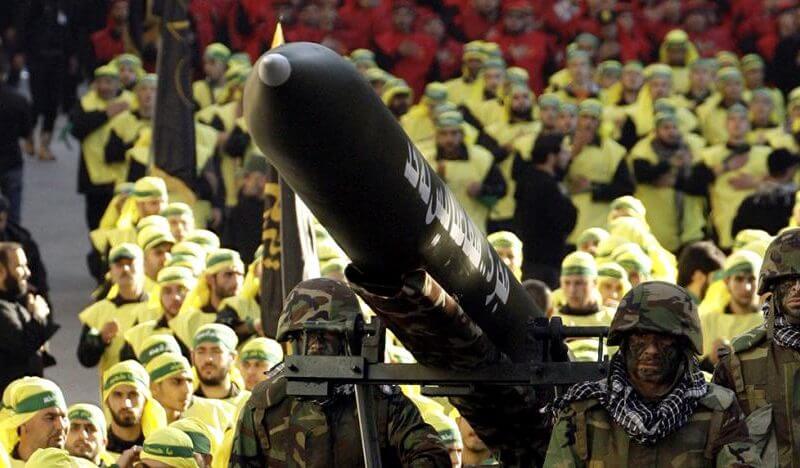The Islamic Republic of Iran's pro-government media published an article Sunday bragging about its "integrated missile network" and how it has armed terrorist entities like Hezbollah in Lebanon and Palestinian terrorist groups in the Middle East.
According to the Jerusalem Post, the pro-regime article begins with a tribute to Hassan Tehrani Moghaddam, an Iranian Islamic Revolutionary Guards Corps (IRGC) general who died in an explosion at a missile facility near Tehran in November of 2011. The article notes that several IRGC officers died in the Modarres arsenal explosion alongside Moghaddam, who was preparing for a missile test. According to Iranian officials, Moghaddam was a significant figure in the missile program for years and was considered the "father" of Iran's missile program.
The article by the Tehran Times explained that Moghaddam "established the Lebanese Hezbollah's missile units during a visit to Lebanon in the 1980s. Analysts believe that Tehrani Moghaddam has based Iran's defense strategy on missile capabilities and missile deterrence, a move that effectively removed the military option of the enemies of Iran from the table."
The article also summarizes the historical pattern of the Islamic Republic of Iran helping terrorist groups like Hamas, Palestinian Islamic Jihad (PIJ), Hezbollah, the Houthis in Yemen, the Hashed in Iraq, and the Assad regime in Syria and others develop missiles.
According to the report, the Islamic Republic is trying to move more missiles and missile technology to Yemen and Lebanon while strengthening Palestinian terrorist groups against the Jewish state of Israel. The report notes that Palestinian groups have begun using the Fajr 5 rocket, which was "strengthened" into a better missile in 2013.
Additionally, the Shiite Lebanese terrorist group known as Hezbollah has increasingly deployed Iranian-backed missile technology against Israel, with missiles being used in the Second Lebanon War in 2006 with the terrorist organization equipping the Fateh 110 missile.
In Iraq, the Islamic Republic has used missiles to attack Kurdish groups, with the article bragging about Iran targeting an Israeli Sa'ar 5 ship during the Second Lebanon War. The missile used by Hezbollah was an anti-ship cruise missile with a range of 120 kilometers.
"Recently, during the border dispute with the Zionist regime over the Karish gas field, Lebanon's Hezbollah released a picture of a cruise missile launcher, similar to the Iranian Abu Mahdi anti-ship cruise missile launcher with a range of 1,000 kilometers," according to the article.
On the other hand, Hezbollah contains missiles that can target the "furthest" places in "the occupied territories," referencing Israel.
Regarding the Assad regime in Syria, Iran has helped equip the government with missiles, in addition to the Houthis in Yemen, referencing the "unveiling of missiles."
In the past, the Houthis relied on older missiles left over in Yemen in previous wars but have now upgraded their missile arsenal with liquid and solid-fuel missiles with help from the IRGC. The article notes that Tehran has increasingly thought about targeting commercial shipping vessels like it did in the summer of 2021 and the fall of this year.
The end result, the report says, is that the Islamic Republic has sought to create an "integrated missile network" that will be significant for the Middle East region, putting it "under the umbrella of the integrated missile and drone network of Iran and its allies, and a new challenge will arise for America and its regional supporters."
Despite facing enormous protests over the death of 22-year-old Mahsa Amini at the hands of the Islamic morality police, the regime in Tehran has blamed foreign countries for inciting the protests and trying to overthrow the government. Iran has marshaled its terrorist proxies to help security forces quash protests inside the country and target American, Israeli, and Persian Gulf Arab officials to deter attention away from the regime's brutal response.
Related Story: Iran Regime Brings in Terror Proxies Hezbollah and Has’d al-Shaabi to Quash Protests









